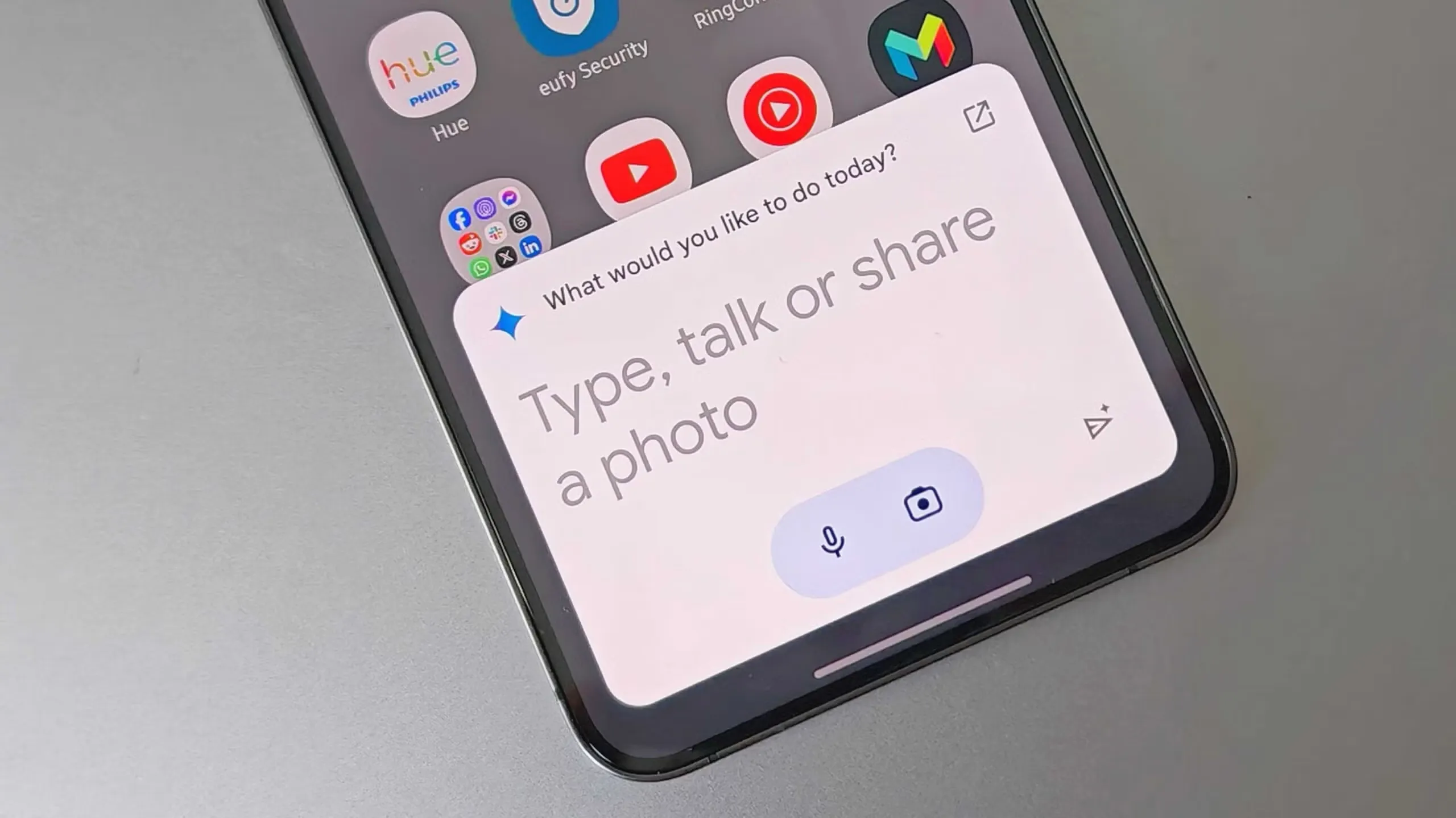Google is making a major shift in its virtual assistant technology by replacing Google Assistant with Gemini. The company officially announced on Friday that Gemini will take over as the default assistant on Android devices, marking a significant transition in Google's AI strategy. This change will be rolled out over the coming months, with a complete phase-out of Google Assistant expected by the end of the year.
The Shift from Google Assistant to Gemini
Google Assistant has been a staple on Android devices, smart speakers, and other Google-connected gadgets since its introduction in 2016. It provided voice-activated assistance, smart home integration, and personalized responses based on user preferences. However, with advancements in artificial intelligence, Google is now pushing for a more sophisticated and capable assistant Gemini.

The transition to Gemini is part of Google's broader AI-first initiative, which aims to integrate more advanced AI models into everyday user experiences. Unlike Google Assistant, which primarily functioned as a command-based voice assistant, Gemini boasts a broader understanding of user queries, improved contextual awareness, and the ability to generate more human-like responses.
Key Features of Gemini
With the introduction of Gemini, users can expect several key enhancements that make it a superior alternative to Google Assistant:
-
Improved Natural Language Processing (NLP)
-
Gemini leverages advanced NLP capabilities, allowing it to understand and process complex queries more effectively.
-
Users can have more natural conversations, reducing the need for rigid, command-based interactions.
-
-
Enhanced Multimodal Capabilities
-
Unlike Google Assistant, which was primarily voice-based, Gemini is designed to understand text, voice, and even images simultaneously.
-
This feature allows users to interact with their devices more intuitively, making Gemini a more versatile tool.
-
-
Better Integration with Google Services
-
Gemini is deeply integrated with Google Search, Gmail, Calendar, Maps, and other essential Google services.
-
Users can ask Gemini to draft emails, schedule events, find directions, and even generate creative content seamlessly.
-
-
Advanced AI-Powered Responses
-
The AI model behind Gemini is significantly more advanced than that of Google Assistant, providing more context-aware responses.
-
It can summarize long articles, generate reports, and offer recommendations based on personalized user behavior.
-
-
Cross-Device Functionality
-
Google has confirmed that Gemini will extend beyond mobile devices and be available on tablets, cars, headphones, smartwatches, smart speakers, displays, and TVs.
-
This means users can access Gemini across multiple devices, ensuring a more unified experience.
-

What This Means for Google Assistant Users
The transition from Google Assistant to Gemini will not be immediate but will occur gradually. According to Google’s official statement, existing Assistant users will be upgraded to Gemini “over the coming months.” Until then, Assistant will continue to function as usual.
However, by the end of 2024, Google Assistant will no longer be available on most mobile devices or in app stores. This means users who rely on Google Assistant will have to adapt to the new Gemini interface and capabilities. Google has assured users that it is working on incorporating many popular Assistant features into Gemini to ensure a smooth transition.
How to Prepare for the Transition
To make the switch from Google Assistant to Gemini as seamless as possible, users should consider the following steps:
-
Update Your Devices Regularly
-
Ensure that your Android phone and other Google-connected devices are updated to the latest software versions.
-
-
Explore Gemini’s Features Early
-
Google has already integrated Gemini into the latest Pixel 9 smartphones as the default assistant.
-
Users can start experimenting with Gemini on compatible devices to get accustomed to its capabilities.
-
-
Learn New Commands and Interactions
-
Since Gemini is designed with a more conversational AI model, users may need to adjust the way they interact with it.
-
Familiarize yourself with its multimodal capabilities, such as using images or text along with voice commands.
-
-
Backup Important Data
-
While Google has assured a smooth transition, it’s always a good idea to back up important voice recordings, routines, or settings that were configured in Google Assistant.
-
-
Monitor Google’s Announcements
-
Google has promised to share more details in the coming months, so staying informed about upcoming updates and feature additions will be crucial.
-
Potential Challenges and Concerns
While the transition to Gemini offers exciting new possibilities, there are some potential challenges users might face:
-
Loss of Familiar Features: Some Google Assistant features may not be immediately available in Gemini, which could frustrate long-time users.
-
Learning Curve: Adapting to a new AI interface may take time, especially for users who are accustomed to Google Assistant’s functionality.
-
Privacy Concerns: With more advanced AI comes increased data processing. Users might need clarity on how their personal data is being used by Gemini.
-
Compatibility Issues: Some older devices may not support Gemini, potentially requiring hardware upgrades for full functionality.

Google’s decision to replace Google Assistant with Gemini marks a significant shift in its AI strategy. By integrating a more advanced, multimodal AI model, Google aims to offer users a smarter, more intuitive digital assistant experience. While the transition will require some adjustments, the enhanced capabilities of Gemini promise to provide users with better responses, improved contextual understanding, and deeper integration across Google’s ecosystem.
As Google continues to refine Gemini and roll it out to more devices, users should stay updated on new features and improvements. For those who have relied on Google Assistant for daily tasks, this change may initially seem daunting, but with time, Gemini has the potential to revolutionize how people interact with their devices.
Ultimately, Gemini’s success will depend on how well it balances advanced AI capabilities with user-friendliness. If Google can ensure a smooth transition while maintaining the best features of Google Assistant, Gemini could set a new standard for virtual assistants in the AI era.

-1708401090.jpg)
-1688204903.jpg)

-1712307933-q80.webp)